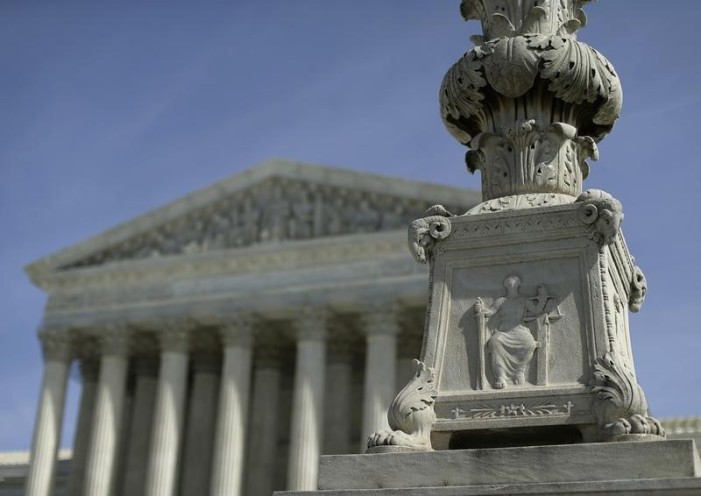 The Supreme Court unanimously defended voting rights in a decision today that upheld the principle of one person, one vote by ruling against an effort to use to total voters instead of total population to draw up legislative districts.
The Supreme Court unanimously defended voting rights in a decision today that upheld the principle of one person, one vote by ruling against an effort to use to total voters instead of total population to draw up legislative districts.
The case was brought by Texas Gov. Greg Abbott as a way of trying to further shape the electorate to benefit Republicans, but the High Court saw through the scheme. As Justice Ginsburg wrote in an opinion that was signed on to by five of the other justices, “What constitutional history and our prior decisions strongly suggest, settled practice confirms. Adopting voter-eligible apportionment as constitutional command would upset a well functioning approach to districting that all 50 States and countless local jurisdictions have followed for decades, even centuries. Appellants have shown no reason for the Court to disturb this longstanding use of total population.”
The Supreme Court concluded that the plaintiffs had offered no reason to change one person, one vote and ruled against the conservatives who were trying to rig future elections by permanently reshaping the electorate to minimize urban areas and minority populations. The case of EVENWEL ET AL. v. ABBOTT, GOVERNOR OF TEXAS, was so egregious that the absence of a ninth justice on the court did not matter.
